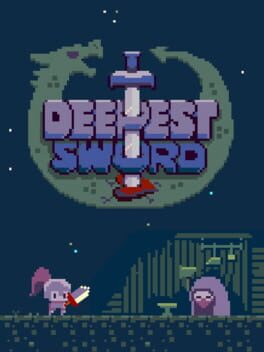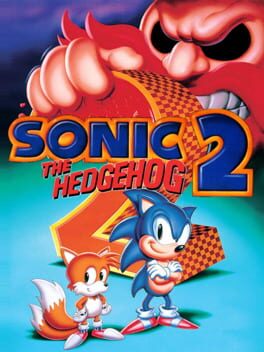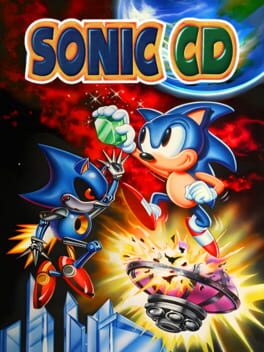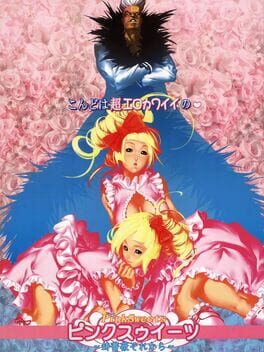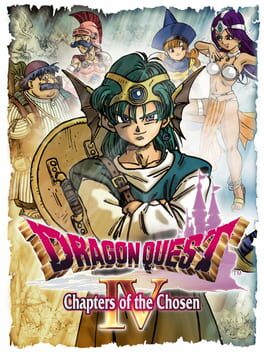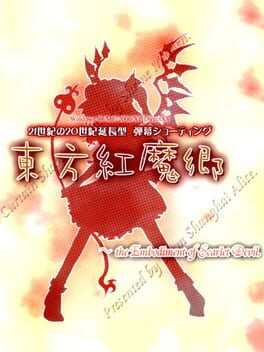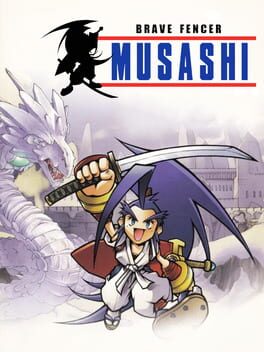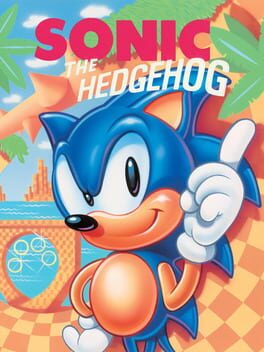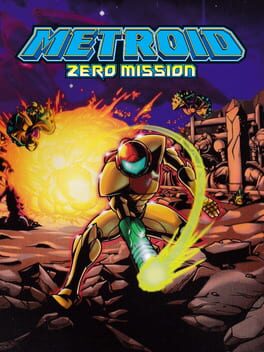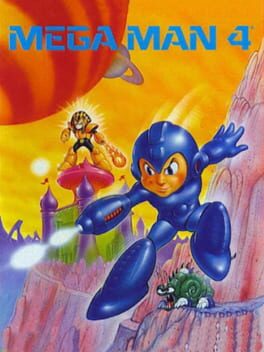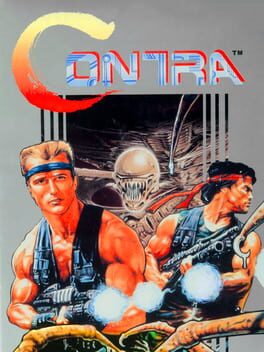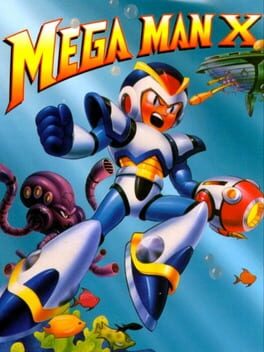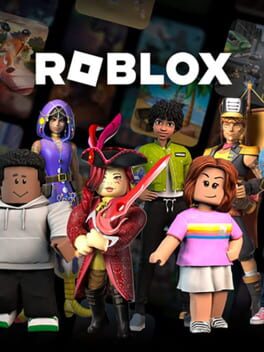SwitSwat
BACKER
2021
1992
I hope whoever designed Wing Fortress Zone has had a horrible life. Between this and some of the other bullshit in the final third of the game, like the terrible enemy placement in Metropolis and being forced to beat the final 2 bosses without any rings, I ended up feeling a bit conflicted on what to rate this one. Overall, this is definitely a huge improvement over the first game. Gone is the slow and tedious platforming that was often required. This is the beginning of the faster-paced gameplay we have grown accustomed to with the 2D series. Also, there's a spin-dash now!
There are also more zones here, most of which are pretty darn good, but despite what many people say about this being peak Sonic, I can't help but feel it's just a tad overrated. My heart may already belong to CD's level design, but I was hoping I'd be blown away with this one, and the final few acts didn't help. But you know what? The soundtrack kicks so much ass that I'm willing to partially forgive it. Very rarely does a game's soundtrack greatly enhance the experience for me, but this one did, and it's not even a JRPG! Color me surprised.
P.S. I heard the special stages are worse here than in the first game... Well, I can't comment on that because I didn't find a single special stage on my first playthrough. Not like I ever really cared about them anyway.
There are also more zones here, most of which are pretty darn good, but despite what many people say about this being peak Sonic, I can't help but feel it's just a tad overrated. My heart may already belong to CD's level design, but I was hoping I'd be blown away with this one, and the final few acts didn't help. But you know what? The soundtrack kicks so much ass that I'm willing to partially forgive it. Very rarely does a game's soundtrack greatly enhance the experience for me, but this one did, and it's not even a JRPG! Color me surprised.
P.S. I heard the special stages are worse here than in the first game... Well, I can't comment on that because I didn't find a single special stage on my first playthrough. Not like I ever really cared about them anyway.
1993
I first played this game when I was 13 but didn't finish it until a few months later when I was 14. What can I say? I'm easily distracted. I'm now 23, and Sonic Frontiers just released. It got me in the mood to go back and revisit some of the Blue Blur's classics, many of which I haven't played. Now, I had a soft spot for Sonic as a kid -- I mean, I can't even tell you how many hours I spent on Sonic Heroes. That said, over the years, a lot of the other games in the franchise I have tried have left a bit of a sour taste in my mouth, but I've been coming around recently! However, Sonic CD is a game that I always thought back fondly on. I liked it enough back then to go for all the Steam achievements, even, which usually I can't be bothered with for platformers. As time passed, I wondered if maybe younger me was just overhyping it...
So here I am 10 years later, having decided to re-evaluate it. I was planning on only trying it for a few minutes before bed, but I ended up completing a whole playthrough in one sitting. I mean, not that it's a long game, but I was very sleep deprived, and I knew better than to postpone some much-needed rest before an early morning shift. But I couldn't help myself! It seems younger me was definitely not overhyping it. The replay value on this one is insane. Every level is a joy to navigate (minus that stupid pinball one), and their abstract design + the techno-infused soundtrack makes for an extremely memorable game. It's too bad it was relegated to obscurity in its time due to being on stupid hardware that no one owned.
P.S. Did you know that CD stands for Chili Dog?
So here I am 10 years later, having decided to re-evaluate it. I was planning on only trying it for a few minutes before bed, but I ended up completing a whole playthrough in one sitting. I mean, not that it's a long game, but I was very sleep deprived, and I knew better than to postpone some much-needed rest before an early morning shift. But I couldn't help myself! It seems younger me was definitely not overhyping it. The replay value on this one is insane. Every level is a joy to navigate (minus that stupid pinball one), and their abstract design + the techno-infused soundtrack makes for an extremely memorable game. It's too bad it was relegated to obscurity in its time due to being on stupid hardware that no one owned.
P.S. Did you know that CD stands for Chili Dog?
How the hell this game's cover art manages to come across as hornier gooner bait than Muchi Muchi Pork! is beyond me.
Anyway, both games came bundled together on the Xbox 360, hence why I played them back-to-back. While an earlier title by only a year, this definitely feels rougher around the edges, and the lack of bombs or deployable special abilities makes later stages feel more annoying than they could be. I wouldn't have minded taking out 1 or 2 stages, either.
Probably for the more dedicated CAVE and danmaku enthusiasts... but once again, for the mildly excited as well.
Anyway, both games came bundled together on the Xbox 360, hence why I played them back-to-back. While an earlier title by only a year, this definitely feels rougher around the edges, and the lack of bombs or deployable special abilities makes later stages feel more annoying than they could be. I wouldn't have minded taking out 1 or 2 stages, either.
Probably for the more dedicated CAVE and danmaku enthusiasts... but once again, for the mildly excited as well.
For anyone wanting to get into the older Dragon Quest titles, IV seems like the best starting point, personally. Think about this: You have an RPG that originally came out in 1990 for the NES, with an actual attempt at character development. Not only that, but they took it a step further by dividing it up into chapters. The first four specifically focus on certain characters, giving you a nice introduction to each one and their basic jobs in a party setting. As an introduction to the series, this works really well, as the chapter system allows for a big window of time to familiarize yourself with the world exploration and battle mechanics in a relatively linear fashion. Many RPGs from this era can be intimidating due to the lack of direction, but DQ IV makes it feel accessible and welcoming. For reference, there are five main chapters in this remake (with an optional post-game chapter), and it took me around 10 hours to finish the first 4. The fifth chapter is where everyone finally comes together and the real journey begins. By that point, you've spent a good chunk of time with the game and opening up the world is no
longer so intimidating.
Granted, while dividing up the game like this is a very innovative storytelling technique for the time, some may be curious if drags out for too long. I will admit, some character's chapters are certainly more interesting than others. Chapter 3 in particular is pretty slow as you take control of a merchant character who goes about his day selling weapons at a shop to make some money. You'll be doing this for a while at the start of it just to afford proper gear to go out and fight some baddies. While certain sections like this can be rather sluggish, they often don't drag on for too long, and they provide some really cool immersion into these characters' lives. By the time you reach Chapter 5, I feel that you will be invested enough in these characters (provided you are enjoying the game), to make the final chapter all the more interesting.
I spent enough time trying to sell you on the game's main storytelling gimmick, but how does the game itself play? If you've never played a Dragon Quest game, it's pretty standard classic JRPG fare. You talk to people and receive valuable hints, traverse dungeons, fight bosses, the works. DQ IV's bright and colorful world keeps things fun. No dungeons ever truly feel tedious, and while grinding is certainly necessary at points, it's nothing too bad. The great thing about this series in general is how valuable level ups can be. Leveling up even once can make all the difference when confronted with a difficult area/boss. And with the ability to swap out characters even during battle once you have your full team with you in the latter half of the game, the game feels quite forgiving for the most part. With this remake, you get some great quality of life improvements too, such as quick saving in most places, even within dungeons. Besides this, you also get full party control in the final two chapters (this includes the post-game chapter). In the original game, you could only control the hero while the rest of your party was AI-controlled. The option is still there for anyone that wants to go the traditional route, though.
Overall, while I think some of the chapters could have benefitted from being a bit more fleshed out or cutting some minor fluff, it still does a great job on worldbuilding and keeping things fresh with some variety in its gameplay and character POV. The world is vibrant and charming, boss fights are a joy to conquer, and the story and characters have enough depth for a 30+ year old game to be worth the time. Also, this game seriously has one of the coolest final boss fights I've ever encountered in any JRPG. I recommend the mobile version due to it including the party chat feature, which serves to slightly flesh out character personalities more through fun side banter. It's not necessary to enjoy the game, but the option is there. Whichever version you play, you're still in for a great classic DQ experience, just with the added modern QOL improvements.
longer so intimidating.
Granted, while dividing up the game like this is a very innovative storytelling technique for the time, some may be curious if drags out for too long. I will admit, some character's chapters are certainly more interesting than others. Chapter 3 in particular is pretty slow as you take control of a merchant character who goes about his day selling weapons at a shop to make some money. You'll be doing this for a while at the start of it just to afford proper gear to go out and fight some baddies. While certain sections like this can be rather sluggish, they often don't drag on for too long, and they provide some really cool immersion into these characters' lives. By the time you reach Chapter 5, I feel that you will be invested enough in these characters (provided you are enjoying the game), to make the final chapter all the more interesting.
I spent enough time trying to sell you on the game's main storytelling gimmick, but how does the game itself play? If you've never played a Dragon Quest game, it's pretty standard classic JRPG fare. You talk to people and receive valuable hints, traverse dungeons, fight bosses, the works. DQ IV's bright and colorful world keeps things fun. No dungeons ever truly feel tedious, and while grinding is certainly necessary at points, it's nothing too bad. The great thing about this series in general is how valuable level ups can be. Leveling up even once can make all the difference when confronted with a difficult area/boss. And with the ability to swap out characters even during battle once you have your full team with you in the latter half of the game, the game feels quite forgiving for the most part. With this remake, you get some great quality of life improvements too, such as quick saving in most places, even within dungeons. Besides this, you also get full party control in the final two chapters (this includes the post-game chapter). In the original game, you could only control the hero while the rest of your party was AI-controlled. The option is still there for anyone that wants to go the traditional route, though.
Overall, while I think some of the chapters could have benefitted from being a bit more fleshed out or cutting some minor fluff, it still does a great job on worldbuilding and keeping things fresh with some variety in its gameplay and character POV. The world is vibrant and charming, boss fights are a joy to conquer, and the story and characters have enough depth for a 30+ year old game to be worth the time. Also, this game seriously has one of the coolest final boss fights I've ever encountered in any JRPG. I recommend the mobile version due to it including the party chat feature, which serves to slightly flesh out character personalities more through fun side banter. It's not necessary to enjoy the game, but the option is there. Whichever version you play, you're still in for a great classic DQ experience, just with the added modern QOL improvements.
Stage 1 music didn't have to go so hard, though. But seriously, I was really excited to finally get to the Windows games, and perhaps my expectations were a bit too high, because while I do really enjoy this game, a prettier coat of paint isn't gonna gaslight me into preferring this over something like LLS (my beloved). Plus, while I am not letting this issue affect my rating, I'd like to mention the headache this game brought on to me:
So, it was my first run, and I got about halfway through Stage 3, when suddenly, my left arrow key stopped working. Granted, this seems to be a common issue with a lot of Touhou games and I have experienced it a few times in the older games as well, but I could usually fix it relatively quickly. This time, nothing I did worked. I restarted the game, my PC, updated my drivers, cleaned the socket for the key, and still no dice. This is a problem that also persisted outside of the game, though. I was starting to think the switch died or something, but every once in a while, it would decide to work again for a bit, and then die again. After not touching it for a few hours, I came back. and everything was working normally. I got to the final boss aaaaaand... the key stopped working again.
I was able to brute force my way to victory with the harder to use num pad, but I guess my point is: If it turns out that I need to replace my keyboard, it'd be kind of funny to say it was because of Touhou.
So, it was my first run, and I got about halfway through Stage 3, when suddenly, my left arrow key stopped working. Granted, this seems to be a common issue with a lot of Touhou games and I have experienced it a few times in the older games as well, but I could usually fix it relatively quickly. This time, nothing I did worked. I restarted the game, my PC, updated my drivers, cleaned the socket for the key, and still no dice. This is a problem that also persisted outside of the game, though. I was starting to think the switch died or something, but every once in a while, it would decide to work again for a bit, and then die again. After not touching it for a few hours, I came back. and everything was working normally. I got to the final boss aaaaaand... the key stopped working again.
I was able to brute force my way to victory with the harder to use num pad, but I guess my point is: If it turns out that I need to replace my keyboard, it'd be kind of funny to say it was because of Touhou.
1998
BFM is a game that obviously had a lot of heart put into it, but is ultimately let down by its own ambitions. Knowing this game's status as a cult classic and one of the more underrated games under Square's belt, I had always been looking forward to finally giving it a try. Well, upon finally getting through it, it's a shame that my thoughts end up being pretty negative for the most part. But to start, I'll address the positives.
As I said, a lot of love clearly went into crafting this game. The game's art direction is brimming with childlike whimsy and Saturday morning cartoon vibes. The voice acting is surprinsingly solid for the time; often times even hilarious, but authentically so. And I briefly stated in the beginning that it had ambitions. These include things like a day and night cycle (including specific days of the week), healing foods that can spoil if kept too long, a system of copying enemy abilities to overcome certain obstacles, etc. These things are cool and all in theory, as they make the game feel unique in its own right. But while variety is the spice of life, it's things like this that make the game much more cumbersome than they ought to be.
I played this game shortly after having completed my first playthrough of Threads of Fate (also made by Square) and I couldn't help but draw comparisons to it. Threads of Fate was by no means an amazing game imo, but it had enough charm and decent combat to keep me entertained. BFM certainly shares that whimsical charm with Threads of Fate, but many things it tries to accomplish, I just feel Threads did better. The combat for one just feels really stiff and uninteresting here. I decided to try avoiding engaging in combat relatively early on with the regular enemies and I ended up getting a nasty surprise later on as the bosses just became way too difficult due to being underleveled. Funny enough, I didn't think level mattered much in this game until then because it's got such a weird leveling convention (Mind, Body, Lum, etc). I didn't really know what any of these meant when looking at my stats.
As I also mentioned prior, you do have the ability to copy enemy abilities, which is required to navigate certain areas. This really is a pain, though, because you need to charge up your sword in order to throw it at an enemy and extract their ability. It sounds simple in theory, but the fact that you can only face one way while charging up is incredibly annoying because often times the enemy will be moving around and you can't properly line up your shot and end up taking damage from them in the process. It seems like a minor nitpick, but this was a problem I had early on and it was foreshadowing what was truly to come. All I can say is: My oh my, does this game have some really sadistic design choices. But first, a bit of sidetracking.
Again, bringing up the possibility of your items spoiling, this is quite silly, because there's really no point in buying almost anything other than cheese in this game, which is the only item that actually improves its healing properties the more time you keep it in storage. On the subject of time, the day and night cycle that was implemented means that certain events relating to the story can only be completed at specific times and in rare cases, even a specific day. It forces you to either go rest at an inn for however long or just let Musashi sleep on the floor until its the right time to get up. For such a cartoony game, they sure added quite a handful of real life inconveniances to its logic. Now, moving on from my side rant, what is it that makes me say this game is sadistic?
The main issue here is its difficulty due to questionable "dungeon" design and dodgy controls. It started off fine. I was even enjoying my time with the game for the first couple of chapters (though still not necessarily thinking it was a particularly great game). The real problems began when they started adding more platforming. The controls feel janky enough as is, and now you're forced to perform some often tricky jumps with a less than ideal camera angle and sometimes unresponsive controls. It made a lot of areas feel grating, but at the very least the bosses at the end of each chapter were interesting and often enjoyable. I did mention earlier that I seemed to hit a severe difficulty spike in the later stages of the game with the bosses, but granted, they would have been way easier if I had taken the time to engage in combat more to level up. But then again, if the devs wanted me to grind, then they should have made the combat more engaging.
If I had to make one more nitpick, it's that the game lacked level variety. With some of the backtracking you have to do, this can get quite annoying, especially when dealing with the overhead view which can get nauseating after going around in circles trying to figure out where to go. BFM is a cute game that deserved better gameplay, and while the story wasn't anything to write home about, I still enjoyed its personality and charm despite often finding myself completely defeated by its challenge and jank.
As I said, a lot of love clearly went into crafting this game. The game's art direction is brimming with childlike whimsy and Saturday morning cartoon vibes. The voice acting is surprinsingly solid for the time; often times even hilarious, but authentically so. And I briefly stated in the beginning that it had ambitions. These include things like a day and night cycle (including specific days of the week), healing foods that can spoil if kept too long, a system of copying enemy abilities to overcome certain obstacles, etc. These things are cool and all in theory, as they make the game feel unique in its own right. But while variety is the spice of life, it's things like this that make the game much more cumbersome than they ought to be.
I played this game shortly after having completed my first playthrough of Threads of Fate (also made by Square) and I couldn't help but draw comparisons to it. Threads of Fate was by no means an amazing game imo, but it had enough charm and decent combat to keep me entertained. BFM certainly shares that whimsical charm with Threads of Fate, but many things it tries to accomplish, I just feel Threads did better. The combat for one just feels really stiff and uninteresting here. I decided to try avoiding engaging in combat relatively early on with the regular enemies and I ended up getting a nasty surprise later on as the bosses just became way too difficult due to being underleveled. Funny enough, I didn't think level mattered much in this game until then because it's got such a weird leveling convention (Mind, Body, Lum, etc). I didn't really know what any of these meant when looking at my stats.
As I also mentioned prior, you do have the ability to copy enemy abilities, which is required to navigate certain areas. This really is a pain, though, because you need to charge up your sword in order to throw it at an enemy and extract their ability. It sounds simple in theory, but the fact that you can only face one way while charging up is incredibly annoying because often times the enemy will be moving around and you can't properly line up your shot and end up taking damage from them in the process. It seems like a minor nitpick, but this was a problem I had early on and it was foreshadowing what was truly to come. All I can say is: My oh my, does this game have some really sadistic design choices. But first, a bit of sidetracking.
Again, bringing up the possibility of your items spoiling, this is quite silly, because there's really no point in buying almost anything other than cheese in this game, which is the only item that actually improves its healing properties the more time you keep it in storage. On the subject of time, the day and night cycle that was implemented means that certain events relating to the story can only be completed at specific times and in rare cases, even a specific day. It forces you to either go rest at an inn for however long or just let Musashi sleep on the floor until its the right time to get up. For such a cartoony game, they sure added quite a handful of real life inconveniances to its logic. Now, moving on from my side rant, what is it that makes me say this game is sadistic?
The main issue here is its difficulty due to questionable "dungeon" design and dodgy controls. It started off fine. I was even enjoying my time with the game for the first couple of chapters (though still not necessarily thinking it was a particularly great game). The real problems began when they started adding more platforming. The controls feel janky enough as is, and now you're forced to perform some often tricky jumps with a less than ideal camera angle and sometimes unresponsive controls. It made a lot of areas feel grating, but at the very least the bosses at the end of each chapter were interesting and often enjoyable. I did mention earlier that I seemed to hit a severe difficulty spike in the later stages of the game with the bosses, but granted, they would have been way easier if I had taken the time to engage in combat more to level up. But then again, if the devs wanted me to grind, then they should have made the combat more engaging.
If I had to make one more nitpick, it's that the game lacked level variety. With some of the backtracking you have to do, this can get quite annoying, especially when dealing with the overhead view which can get nauseating after going around in circles trying to figure out where to go. BFM is a cute game that deserved better gameplay, and while the story wasn't anything to write home about, I still enjoyed its personality and charm despite often finding myself completely defeated by its challenge and jank.
1991
Fear not, for I have seen beyond the dreaded Marble Zone at long last and it's... alright. There's a certain charm that comes with the original game. Not having a spin-dash feels really strange and cumbersome, and for a game that was advertised on the notion of having to go fast, you honestly rarely get a chance to, especially with the amount of tight platforming you have to do in the later zones (and frankly, Marble Zone is a patience tester that is almost inexcusable).
In the year 2022 of our Lord, I cannot say that this game holds up very well, especially when I have been spoiled by modern Sonic mechanics. Though, if you think of this less as a game focused on speed but rather as a traditional platformer with "speed-focused" physics, you might come to appreciate it better. I'm just glad they had the decency to at least include a level select cheat code, because having to repeat zones again and again would be a miserable experience. Heck, continues are tough to come by unless you're good enough to consistently get high scores in acts or unlock the bonus stages and do well enough in them. But if so, would you even really need the surplus of continues in the first place?
In the year 2022 of our Lord, I cannot say that this game holds up very well, especially when I have been spoiled by modern Sonic mechanics. Though, if you think of this less as a game focused on speed but rather as a traditional platformer with "speed-focused" physics, you might come to appreciate it better. I'm just glad they had the decency to at least include a level select cheat code, because having to repeat zones again and again would be a miserable experience. Heck, continues are tough to come by unless you're good enough to consistently get high scores in acts or unlock the bonus stages and do well enough in them. But if so, would you even really need the surplus of continues in the first place?
I've played plenty of Metroid games prior to this. I never beat any of them prior to this one, though. Why? I'll blame it on my short attention span when I was younger. With the release of Metroid Dread looming over the horizon, I figured I should probably delve back into the series. I decided on diving back with this one, seeing as it's a remake of the original Metroid, which I have played. I'll admit, though, the original Metroid is not particularly great. Environments were very samey and the lack of a map system made it extremely confusing and often irritating to navigate. This remake basically fixes every issue I ever had with that game and creates something truly special.
Honestly, I'm hesitant to even continue calling this a simple remake. It's more like a beautiful re-imagining. Everything about this game is consistently wonderful, from the pretty sprite-work, to the fast and tight movement, and the fun exploration. Also, the "stealth" section near the end? Just epic. It's short length also works to its benefit, as even just a day after beating it, I already felt inclined to give it another go.
I feel kind of bummed that I didn't dedicate myself to this series much as a kid. Super Metroid felt grand, but the amount of one-way doors and my lack of inexperience with Metroidvanias left me quite stumped at times. Metroid Prime felt fresh with its gorgeous 3D environments, but its slow movement made backtracking and finding my way through its complex maps tedious. As it stands, this game has once again reinvigorated my hype for this franchise and I'm eager to go back and give those games and the rest of the series another go. Here's to hoping that Metroid Dread is worth the wait.
Honestly, I'm hesitant to even continue calling this a simple remake. It's more like a beautiful re-imagining. Everything about this game is consistently wonderful, from the pretty sprite-work, to the fast and tight movement, and the fun exploration. Also, the "stealth" section near the end? Just epic. It's short length also works to its benefit, as even just a day after beating it, I already felt inclined to give it another go.
I feel kind of bummed that I didn't dedicate myself to this series much as a kid. Super Metroid felt grand, but the amount of one-way doors and my lack of inexperience with Metroidvanias left me quite stumped at times. Metroid Prime felt fresh with its gorgeous 3D environments, but its slow movement made backtracking and finding my way through its complex maps tedious. As it stands, this game has once again reinvigorated my hype for this franchise and I'm eager to go back and give those games and the rest of the series another go. Here's to hoping that Metroid Dread is worth the wait.
1991
Let me get this out of the way first... breathes in... - THEY ADDED AN ACTUAL WEAPON SELECT SCREEN! I don't know why that excited me so much, but it did. No more dumb initials on the lower half of the screen. A full screen menu with actual weapon names this time. Anyway, moving on...
I'm happy to report that MM3 was not just simply a case of series fatigue, but rather just a case of subpar level design. MM4 doesn't feature as much innovation, but that's okay, because the level design here is pretty darn good - maybe even surpassing MM2's for me. I like how the second half was divided into two castle stages. Sure, it's still a test of endurance, but unlike MM3, I really liked the bosses in these castle stages for the most part.
This game features the addition of the upgraded Mega Buster, which allows you to charge up a more powerful shot. This was pretty helpful for taking down a handful of bosses more quickly if you happen to run out of energy on another weapon. But there's actually one thing I wish they had kept from MM3... free movement with Rush Jet is no longer a thing. Terrible. Disgusting. If I was a spiteful person, I'd take away an entire star just for that. But I digress, this is a great game. Definitely has similar replay value to 2, but overall this is the better game, I feel.
I'm happy to report that MM3 was not just simply a case of series fatigue, but rather just a case of subpar level design. MM4 doesn't feature as much innovation, but that's okay, because the level design here is pretty darn good - maybe even surpassing MM2's for me. I like how the second half was divided into two castle stages. Sure, it's still a test of endurance, but unlike MM3, I really liked the bosses in these castle stages for the most part.
This game features the addition of the upgraded Mega Buster, which allows you to charge up a more powerful shot. This was pretty helpful for taking down a handful of bosses more quickly if you happen to run out of energy on another weapon. But there's actually one thing I wish they had kept from MM3... free movement with Rush Jet is no longer a thing. Terrible. Disgusting. If I was a spiteful person, I'd take away an entire star just for that. But I digress, this is a great game. Definitely has similar replay value to 2, but overall this is the better game, I feel.
1988
I distinctly remember playing this game quite a bit when I was a kid. Whether I ever finished it or not back then remains a mystery, because the final stage with the H.R. Giger looking alien looked so familiar, but the actual ending wasn't ringing a bell. If I did in fact finish this back then, then it only stands to reason I've gotten worse at video games, because there is no way in hell that I would have finished this right now without the blessed Konami Code.
Funny enough, I did not realize that the 30 lives cheat remains in effect even after selecting continue. I just assumed you went back to the regular 3 lives upon losing the initial 30. So there I was, reloading save states like an idiot and cursing this game under my breath. Some of the enemy spawns in this game with the graphical pop-in and relentless hordes are just near impossible to avoid at times. I guess that's NES era difficulty for ya. That said, this game would have rated much lower for me if I didn't learn the truth about said Konami Code, which essentially gives you 120 lives to complete its 8 eclectic stages, which I feel is plenty unless you are actively just trying to brute force the game and rush it.
It's a pretty decent game, with the core run-and-gun gameplay being satisfying enough, though it's nothing particularly special. It makes me curious to try the co-op (again?), though. I can't really remember if I ever played co-op with my dad or something, but regardless, it seems to make for a chaotic and fun time with a friend.
Funny enough, I did not realize that the 30 lives cheat remains in effect even after selecting continue. I just assumed you went back to the regular 3 lives upon losing the initial 30. So there I was, reloading save states like an idiot and cursing this game under my breath. Some of the enemy spawns in this game with the graphical pop-in and relentless hordes are just near impossible to avoid at times. I guess that's NES era difficulty for ya. That said, this game would have rated much lower for me if I didn't learn the truth about said Konami Code, which essentially gives you 120 lives to complete its 8 eclectic stages, which I feel is plenty unless you are actively just trying to brute force the game and rush it.
It's a pretty decent game, with the core run-and-gun gameplay being satisfying enough, though it's nothing particularly special. It makes me curious to try the co-op (again?), though. I can't really remember if I ever played co-op with my dad or something, but regardless, it seems to make for a chaotic and fun time with a friend.
2013
1993
Fans really be out here hating on MM1 for being too difficult but put MMX up on a high pedestal.
???
I don't know, most likely another "git gud" moment at my expense, but a lot of things in this game just rub me the wrong way. Some background, though: I first played this when I was younger (maybe 14?) and I remember enjoying it for a bit and then losing interest. The only other MM I had played at that point was MM1. Anyway, I couldn't remember exactly what it was that made me stop playing, but I figured that revisiting it anew would help me gain some appreciation for it. Nah, I was wrong.
For one, I do not particularly like the new upgrade system, which as far as I'm aware, seems to be a staple of the X series, which makes me somewhat hesitant to jump into the others. This game wants you to find every single upgrade, because without them, it's just way too difficult. The Maverick stages become a lot more manageable with these upgrades, which gives you a false sense of relief, because once the Sigma stages start, I just wanted to break my monitor.
You have to fight like 3 or 4 bosses in these Sigma stages, often with some annoying enemies in between with horrendous respawns. Dying here before reaching the next boss gate means you'll have to start from before the previous boss. Even with save states, some bosses took quite a few attempts and thinking about beating this game without them just gave me a migraine. Sigma Stage 1 with all upgrades felt like I was playing with 0 upgrades. It's that bad.
The Maverick stages themselves also left a lot to be desired. This is something that I just can't describe. The levels just weren't that good, personally. Though, having certain stages change based on the order you tackle them is a really cool concept. For example, going through Flame Mammoth's stage after I already beat Chill Penguin meant that the lava in the stage was completely frozen, which made it easier to traverse. It's something that definitely gives it some extra replay value, but it's not enough for me.
It's a shame I feel this way, because the core gameplay is actually quite competent. Wall jumping is a great mechanic, and the dash ability is fun to spam. I kinda wish this game kept the slide mechanic I got so used to with MM3-6. But new series, new changes. I get it. The point is, movement feels great here. Something must be said about the soundtrack as well. Absolute banger. It's probably one of my favorite soundtracks of the 16-bit era. The level selection screen music in particular has no right being as good as it is.
But at the end of the day, I just didn't have all that much fun with this one, and it kind of bums me out that I don't see in it what many others do. Maybe in another few years I can revisit this game and it will suddenly click with me, but even if that doesn't happen, at least there's plenty more MM games to check out.
???
I don't know, most likely another "git gud" moment at my expense, but a lot of things in this game just rub me the wrong way. Some background, though: I first played this when I was younger (maybe 14?) and I remember enjoying it for a bit and then losing interest. The only other MM I had played at that point was MM1. Anyway, I couldn't remember exactly what it was that made me stop playing, but I figured that revisiting it anew would help me gain some appreciation for it. Nah, I was wrong.
For one, I do not particularly like the new upgrade system, which as far as I'm aware, seems to be a staple of the X series, which makes me somewhat hesitant to jump into the others. This game wants you to find every single upgrade, because without them, it's just way too difficult. The Maverick stages become a lot more manageable with these upgrades, which gives you a false sense of relief, because once the Sigma stages start, I just wanted to break my monitor.
You have to fight like 3 or 4 bosses in these Sigma stages, often with some annoying enemies in between with horrendous respawns. Dying here before reaching the next boss gate means you'll have to start from before the previous boss. Even with save states, some bosses took quite a few attempts and thinking about beating this game without them just gave me a migraine. Sigma Stage 1 with all upgrades felt like I was playing with 0 upgrades. It's that bad.
The Maverick stages themselves also left a lot to be desired. This is something that I just can't describe. The levels just weren't that good, personally. Though, having certain stages change based on the order you tackle them is a really cool concept. For example, going through Flame Mammoth's stage after I already beat Chill Penguin meant that the lava in the stage was completely frozen, which made it easier to traverse. It's something that definitely gives it some extra replay value, but it's not enough for me.
It's a shame I feel this way, because the core gameplay is actually quite competent. Wall jumping is a great mechanic, and the dash ability is fun to spam. I kinda wish this game kept the slide mechanic I got so used to with MM3-6. But new series, new changes. I get it. The point is, movement feels great here. Something must be said about the soundtrack as well. Absolute banger. It's probably one of my favorite soundtracks of the 16-bit era. The level selection screen music in particular has no right being as good as it is.
But at the end of the day, I just didn't have all that much fun with this one, and it kind of bums me out that I don't see in it what many others do. Maybe in another few years I can revisit this game and it will suddenly click with me, but even if that doesn't happen, at least there's plenty more MM games to check out.
2006
2023
When it comes to this series, XV should have taught me to remain... cautiously optimistic, at best. As I directed my metaphorical gaze towards Square Enix, I proudly proclaimed, "You cannot... will not, get me to buy the deluxe edition! Not again Satan!" And I didn't. Though, part of me still wishes I had. See, it's been nearly 7 years since we got XV, and I have learned. Unlike that game, XVI had all the surefire signs that it would deliver, and all these factors lead back to one, uh, thing: Yoshi P.
The lead up to this game's release had me so hyped that I actually tried getting back into XIV, and I ended up getting hooked. I already knew, but this just further cemented it: Kino was upon us. Sure, in hindsight, perhaps my expectations were still too high (I guess I didn't learn enough). But, does it really matter? CBUIII still gave us the gift of a complete and quality product. XVI is stylish, it's dark, and most importantly, it's fun.
There's a question that likes to get thrown around a lot during discussions of this game: is XVI a real Final Fantasy game? Personally, the series has always been about experimentation. Besides some usual trademark staples like chocobos and moogles, there's not really a concrete foundation for what makes a FF game. As far as I'm concerned, this series is a great sandbox for SE to play around with new ideas and bring something new and interesting to the table - hoping that of course, it lands.
Devil May Cry-lite combat mechanics? Sure, why not. Gore? Knock yourself out. Scenes that would make your parents blush? Might as well.
Yeah, XVI is for sure a very radical departure from what most have come to expect from the series, and it's a very divisive title as a result. But again, I'm usually one to embrace change, and it's something that I have come to expect in a series that's been going strong for nearly 40 years. This game may feel like a AAA western action "blockbuster" more than a "proper" JRPG, but I could care less when the game is this good.
Cons? I can list quite a few, actually:
- Low difficulty
- Combat mechanics aren't as deep as they could have been
- Lots of MMO-ish side quests
- Padding and weak pacing later on
- Terrible loot
- Dungeons? What dungeons?
All of these complaints amount to very little in the grand scheme of things. The fact of the matter is, in the 48 or so hours it took me to get through my first playthrough, there were many moments of joy, of awe, and of pain that I would gladly experience all over again for the first time if I could. I'm so glad this game exists, and I'm thankful to Yoshi P for making it happen. Mainline Final Fantasy is so back.
Oh, and the Eikon battles were pretty badass, yeah.
The lead up to this game's release had me so hyped that I actually tried getting back into XIV, and I ended up getting hooked. I already knew, but this just further cemented it: Kino was upon us. Sure, in hindsight, perhaps my expectations were still too high (I guess I didn't learn enough). But, does it really matter? CBUIII still gave us the gift of a complete and quality product. XVI is stylish, it's dark, and most importantly, it's fun.
There's a question that likes to get thrown around a lot during discussions of this game: is XVI a real Final Fantasy game? Personally, the series has always been about experimentation. Besides some usual trademark staples like chocobos and moogles, there's not really a concrete foundation for what makes a FF game. As far as I'm concerned, this series is a great sandbox for SE to play around with new ideas and bring something new and interesting to the table - hoping that of course, it lands.
Devil May Cry-lite combat mechanics? Sure, why not. Gore? Knock yourself out. Scenes that would make your parents blush? Might as well.
Yeah, XVI is for sure a very radical departure from what most have come to expect from the series, and it's a very divisive title as a result. But again, I'm usually one to embrace change, and it's something that I have come to expect in a series that's been going strong for nearly 40 years. This game may feel like a AAA western action "blockbuster" more than a "proper" JRPG, but I could care less when the game is this good.
Cons? I can list quite a few, actually:
- Low difficulty
- Combat mechanics aren't as deep as they could have been
- Lots of MMO-ish side quests
- Padding and weak pacing later on
- Terrible loot
- Dungeons? What dungeons?
All of these complaints amount to very little in the grand scheme of things. The fact of the matter is, in the 48 or so hours it took me to get through my first playthrough, there were many moments of joy, of awe, and of pain that I would gladly experience all over again for the first time if I could. I'm so glad this game exists, and I'm thankful to Yoshi P for making it happen. Mainline Final Fantasy is so back.
Oh, and the Eikon battles were pretty badass, yeah.
